The Locked up Living Podcast: Surviving and thriving in prisons and other challenging environments
Can institutional culture challenge your mental health? What if your job makes you feel shame, sadness, grief, disgust and fear? What if you are expected not to feel? Or you are expected to be relentlessly competitive? What it’s like to live or work in a prison? Does working with people who commit murder, child abuse and rape affect people who work in prisons and the wider criminal justice system?
How do people survive and thrive when facing significant challenges to our emotional health over a lengthy period? How do we protect ourselves and stay compassionate, loving and trusting? Importantly, how do we find and preserve hope?
Fyodor Dostoevsky wrote that “The degree of civilisation in a society can be judged by entering its prisons”. In this weekly podcast ,your hosts, David Jones (Forensic psychotherapist) and Dr Naomi Murphy (Consultant Clinical & Forensic Psychologist) hope that exploring less visible aspects of prisons will help listeners see that prisons are a window into society and let us see people not only at their worst but also at their best. We feature a rich range of guests sharing snap shots of life in prisons and take a look at hospitals, schools, sport and the police in order to learn from other institutions. We learn about challenges to human integrity and hear important lessons and heart-warming stories about survival and growth when facing adversity in harsh places. We hope that sharing our conversations can help you make changes to your own relationship with institutions that might challenge your emotional health and well-being.
Follow and connect with us and give us feedback. Let us know what you think works, and also what doesn’t. We want you to look forward to the podcast each week. We’ll also be extremely grateful for any reviews that you give us. A simple star or two or a thumbs up will do.
Email: lockedupliving@gmail.com or connect with us on:
Substack: https://lockedupliving.substack.com
Twitter: https://twitter.com/LockedUpLiving
Linkedin: https://www.linkedin.com/in/naomimurphypsychologist/
https://www.linkedin.com/in/david-jones-41910b12/
Insta: https://www.instagram.com/lockedupliving/
Can institutional culture challenge your mental health? What if your job makes you feel shame, sadness, grief, disgust and fear? What if you are expected not to feel? Or you are expected to be relentlessly competitive? What it’s like to live or work in a prison? Does working with people who commit murder, child abuse and rape affect people who work in prisons and the wider criminal justice system?
How do people survive and thrive when facing significant challenges to our emotional health over a lengthy period? How do we protect ourselves and stay compassionate, loving and trusting? Importantly, how do we find and preserve hope?
Fyodor Dostoevsky wrote that “The degree of civilisation in a society can be judged by entering its prisons”. In this weekly podcast ,your hosts, David Jones (Forensic psychotherapist) and Dr Naomi Murphy (Consultant Clinical & Forensic Psychologist) hope that exploring less visible aspects of prisons will help listeners see that prisons are a window into society and let us see people not only at their worst but also at their best. We feature a rich range of guests sharing snap shots of life in prisons and take a look at hospitals, schools, sport and the police in order to learn from other institutions. We learn about challenges to human integrity and hear important lessons and heart-warming stories about survival and growth when facing adversity in harsh places. We hope that sharing our conversations can help you make changes to your own relationship with institutions that might challenge your emotional health and well-being.
Follow and connect with us and give us feedback. Let us know what you think works, and also what doesn’t. We want you to look forward to the podcast each week. We’ll also be extremely grateful for any reviews that you give us. A simple star or two or a thumbs up will do.
Email: lockedupliving@gmail.com or connect with us on:
Substack: https://lockedupliving.substack.com
Twitter: https://twitter.com/LockedUpLiving
Linkedin: https://www.linkedin.com/in/naomimurphypsychologist/
https://www.linkedin.com/in/david-jones-41910b12/
Insta: https://www.instagram.com/lockedupliving/
Episodes
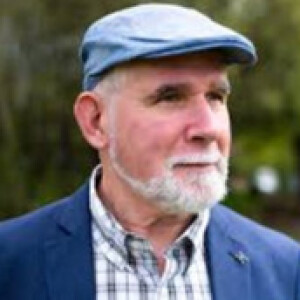
Wednesday May 03, 2023
133. Vincent McGovern Challenging misandry in the family court
Wednesday May 03, 2023
Wednesday May 03, 2023
Todays conversation is with Vincent McGovern, Vincent works part time as a shared parenting campaigner. He is also Chair of Central and North London Branches of Families Need Fathers, a Shared Parenting Charity. He has had 18 inquiries and five Ombudsman (including 3 Parliamentary & Health Services Ombudsman) investigations into malpracticing children's services all ending with findings in his favour including compensation. He addressed x2 the Euro Parliament Petitions Commission and forced the first inspection of UK family law by the EU comm. The video is at vincentmcgovern.com.Those services at fault were Brent Social Services, Brent C.A.M.H.S, Solicitors Regulatory Authority , Brent Primary Care Trust, and Cafcass, the UK Children and Family Co
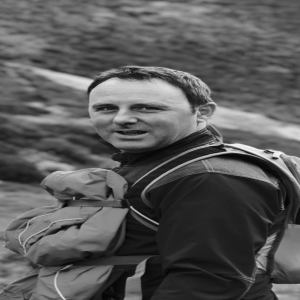
Wednesday Apr 26, 2023
132. Iain Smith - Trauma informed law
Wednesday Apr 26, 2023
Wednesday Apr 26, 2023
Iain Smith is in his 30th year of being a lawyer. Started out in a civil firm where Robert Louis Stephenson trained. Created his own business in 1998 with Jim Keegan, Kings Counsel who was by then an experienced high court solicitor advocate. Iain concentrated on crime but also did children’s referral hearings and acted as a sports lawyer for international rugby stars.
In 2018 he had an epiphany in reaction to being educated on the biological impact of trauma on the childhood brain. He suddenly saw his clients properly for the first time. He then realised others didn’t know about childhood trauma and the links to addiction and poor self regulation.
He co-created Trauma Aware Law in December 2020, with legal colleagues and pals from the Scottish Police Violence Reduction Unit.
In 2020 won the Scottish Lawyer of the Year at the Scottish Legal Awards.
2021 Herald Scottish Criminal Law Firm of the Year - Keegan Smith
2022 Scottish Legal Awards Criminal Law Firm of the Year - Keegan Smith
2022 Herald Legal Awards Innovation Award - Trauma Aware Law
Nominated for Pro Bono Award
https://www.lawscot.org.uk/news-and-events/events/trauma-informed-lawyer-certification-course/
https://twitter.com/TraumaAwareLaw
The awards opened doors & gave credibility to the campaigning. (I’m not the best lawyer in Scotland !).
His aim is to bring knowledge of trauma into the justice system and then persuade the players in it to change & create more compassionate outcomes for who we perceive as “baddies”.
You can find the transcript of this conversation at:
https://open.substack.com/pub/lockedupliving/p/should-all-lawyers-be-aware-of-the?r=216eb0&utm_campaign=post&utm_medium=web
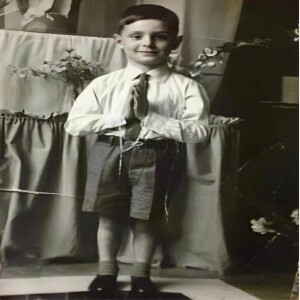
Wednesday Apr 19, 2023
Wednesday Apr 19, 2023
This powerful conversation is with Rafael Viola. Rafael is a survivor of Catholic Church abuse, he is a campaigner fighting for change and accountability seeking justice for the atrocities that happened at CROOME COURT children's home . He was a core participant at the iiicsa inquiry himself and he with many others survivors were refused the opportunity to give oral evedence. He was shocked at the way survivors were sidelined while perpetrators and thise representing perpetrators seemed cosy and complicit with the inquiry. He wants to know why were core participants and survivors silenced by iiicsa, The Independant Inquiry into Child Sexual Abuse.
https://www.iicsa.org.uk/
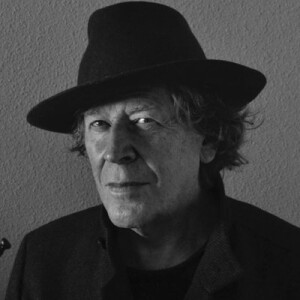
Wednesday Apr 19, 2023
Wednesday Apr 19, 2023
We’re really excited about today’s guest. He will be a familiar name to many. Pat Mills has been a successful writer and editor of popular culture from the age of 20, developing comics, novels, science fiction, film and game work.
Perhaps best-known as the developer of Judge Dredd and writer of Charley’s War, a long running anti-war saga that sells throughout Europe, all of Pat’s stories are about fighting abusive authority. That trait extends to the catholic church and his experiences as a child.
Pat also would be described as a whistleblower. He has a really insightful grasp of the structure of the Roman Catholic Church and how its highly organised structure has enabled a network of paedophiles to operate within it. He is working hard to expose this and make it more transparent to others. This conversation is likely to shock and depress you in places.
You can find the transcript of this conversation on our Substack:
https://open.substack.com/pub/lockedupliving/p/pat-mills-how-systemic-is-sexual?r=216eb0&utm_campaign=post&utm_medium=web
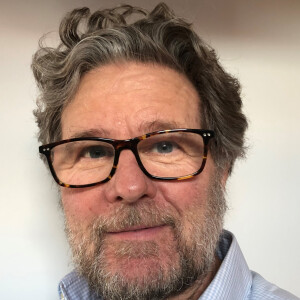
Wednesday Apr 12, 2023
Wednesday Apr 12, 2023
This episode of the Locked Up Living podcast features a conversation with Ashley Conway, a counseling psychologist specialized in trauma memory, particularly childhood abuse. Conway discusses the origin and implications of false memory syndrome, emphasizing the harmful effects it has on survivors of abuse. He brings light to the False Memory Syndrome Foundation's controversial history, its connections with figures from psychology and the CIA, and the impact on both the therapeutic field and survivors. Conway also shares insights into his personal methods of maintaining mental health and well-being, highlighting the importance of creativity, nature, exercise, and familial support.
00:00 Unveiling DARVO: The Dynamics of Abuse01:04 Introducing Locked Up Living: A Podcast on Overcoming Institutional Life01:25 Spotlight on Ashley Conway: A Career in Counseling Psychology05:11 Exploring False Memory Syndrome: Origins and Controversies14:54 The Intriguing Case of Elizabeth Loftus and Ethical Dilemmas20:56 The Formation and Impact of False Memory Foundations in the US and UK31:43 The Profound Impact of False Memory Discourse on Survivors32:36 Personal Accounts and the Long Wait for Justice33:07 The Dangers of Seeking Therapy for Survivors34:32 Exploring the Controversial Work of Martin Orne39:15 Unveiling the MKUltra Program and Its Horrors47:23 The Formation and Goals of the False Memory Syndrome Foundation54:02 The Consequences of Exposing Controversial Truths58:00 Maintaining Mental Health Amidst Challenging Work
Sinason, V. & Conway,A (Eds) (2022) Trauma and Memory – The Science and the Silenced. London: Routledge.
Conway A.(2022). In conversation with Ross Cheit. In: Trauma and Memory: The Silence and the Silenced. London: Routledge.
Conway, A. (2022) The abuse of the science to silence the abused. In: Trauma and Memory: The Silence and the Silenced. London: Routledge.
Conway & D. Pilgrim (2022). The policy alignment of the British False Memory Society and the British Psychological Society. Journal of Trauma and Dissociation, 165- 176. https://doi.org/10.1080/15299732.2022.2028222
Conway, A. (2023 / In press) Policy capture at the BPS: the memory and law controversy. In:
Pilgrim,D (Ed) British Psychology in Crisis. A Case Study in Organisational Dysfunction
You can find a transcript of this conversation over on our Substack:
https://open.substack.com/pub/lockedupliving/p/ashley-conway-accidental-expert-in?r=216eb0&utm_campaign=post&utm_medium=web
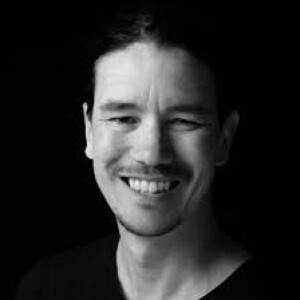
Wednesday Apr 05, 2023
128. James Wong (of A Band of Brothers): reducing imprisonment for young males
Wednesday Apr 05, 2023
Wednesday Apr 05, 2023
James Wong currently serves as Chief Development Officer (CDO) at A Band of Brothers (https://abandofbrothers.org.uk/). He is accountable for creating sustainable fundraising avenues and revenue streams in realising Abandofbrothers’ mission.
James believes in laying down healthy foundations for our future generations. After many years of feeling frustration and desperation in his efforts, he has found new hope, meaning and personal potency by coming together in community to share the responsibility of supporting some of the most troubled young men in our society.
Building on successful careers in Hospitality Management, Landscape Gardening and as a Therapeutic Counsellor; James joined Abandofbrothers in 2014.
He has since served his apprenticeship as a Mentor to young men, a Community Project Leader, a Certified Weekend Rite of Passage Leader and Mentor, National Council Representative and Regional CEO.
In his current role as CDO and working closely with Conroy and Dan; James’ passion for storytelling, entrepreneurial thinking and ability to operationalise ideas into action serve to help synergise our programmes, people and finances.
You can find a transcript of this conversation over on our Substack:
https://open.substack.com/pub/lockedupliving/p/james-wong-rites-of-passage-with?r=216eb0&utm_campaign=post&utm_medium=web
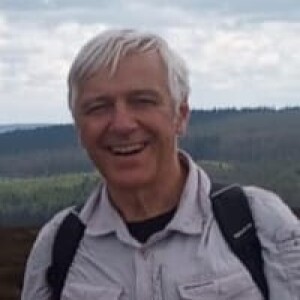
Wednesday Mar 29, 2023
127. Poet Hugh Venables: How and why journalling is good for your well-being
Wednesday Mar 29, 2023
Wednesday Mar 29, 2023
Many of our podcast conversations have engaged with the idea of thinking, how to encourage, to change, to stop. This discussion is also about thinking but approaching it from an oblique angle. Journaling and poetry, two activities that involve getting thoughts out of ones mind and written down on paper.
Hugh Venables is a Yorkshire-based writer and poet. He is passionate about the power of words. A selection of his poetry is available at hughvenablespoetry.com
You can find a transcript of this conversation over on our substack:
https://open.substack.com/pub/lockedupliving/p/hugh-venables-transcript-the-alchemy?r=216eb0&utm_campaign=post&utm_medium=web
Until his retirement, for twenty-five years he ran his own successful marketing communications and graphic design company in York.
Married with four grown-up children, Hugh enjoys bird-watching and walking, especially across the North of England. He is also a keen amateur horologist. His 'reflections' blog, about clocks, time and life in general, can be found at www.theclock-shop.co.uk/reflections/
Hugh can be contacted via comments@hughvenablespoetry.com
We, and Hugh would welcome feedback about his episode.

Wednesday Mar 22, 2023
Wednesday Mar 22, 2023
Dan Lawrence is a forensic psychologist who is based in a secure mental health service in south wales where he provides input into medium and low secure services for men. He is also a PhD student, associate tutor and academic supervisor at Cardiff Metropolitan University. He conducted an important scoping study into the effect of restrictive practices in adult forensic mental health services. D Lawrence et al.
https://www.tandfonline.com/doi/abs/10.1080/14999013.2021.1887978?journalCode=ufmh20
"The studies were grouped into four main areas: 1) Nature of the problem describing the type, incidence, prevalence and scope of restrictive practices in secure mental health services; 2) Service user perceptions and experiences of restrictive practices; 3) Staff experiences, views and decision making; and 4) Interventions designed to reduce the use of restrictive practices. Findings support the notion that restrictive practices have a detrimental impact on the wellbeing of most service users in adult secure services as well as the staff who use them. Continued efforts to reduce restrictive practices are needed and the importance of collaborative working cannot be understated. Implications for future research, clinical practice, policy and best practice guidelines are all discussed."
You can find a transcript of this conversation over on our Substack at:
https://open.substack.com/pub/lockedupliving/p/dan-lawrence-working-with-people?r=216eb0&utm_campaign=post&utm_medium=web
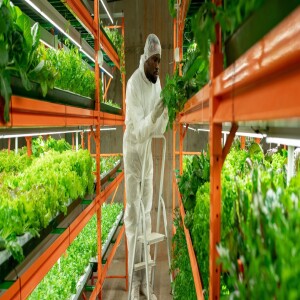
Wednesday Mar 15, 2023
125. Alex Busansky & George Carter Impact Justice and Farming in US prisons
Wednesday Mar 15, 2023
Wednesday Mar 15, 2023
Alex Busansky (president of Impact Justice) and George Carter Impact/Justice
Today we are pleased to be meeting with Alex Busansky. Alex began his career as a prosecutor at the Manhattan District Attorney’s Office in 1987. For 12 years, he handled homicides, serious domestic and other family violence, and sex abuse cases. He moved on to found Impact Justice, a national innovation and research center based in Oakland, CA and Washington, DC, which works to create a more humane and restorative system of justice in the United States. I should mention that we have engaged with Impact/Justice previously when we talked with Leslie Soble and Roy Waterman about food in US prisons.
At Impact Justice, Alex works to reduce the number of people involved in the justice system, improve conditions for those currently incarcerated, and support people successfully re-enter communities. He and his colleagues have developed, launched, and scaled numerous projects including the Restorative Justice Project, the PREA Resource Center, the Homecoming Project, the Research and Action Center, and the Center on Youth Registration Reform.
https://impactjustice.org/
George Carter is the founder of Skout strategy and is an eco-system and food systems builder and AgTechnologist. He partners with Impact Justice to develop vertical farming.
https://www.skoutstrategy.com/
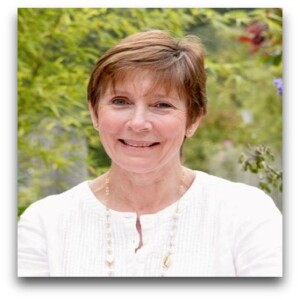
Wednesday Mar 08, 2023
124. Margie Wright: What is Transpersonal Psychotherapy?.
Wednesday Mar 08, 2023
Wednesday Mar 08, 2023
One of the pleasures of our Locked up Living conversations, for us, is that we are always meeting people who come with different experience and a different perspective. But always the underlying tenets ar the same, sensitivity, thoughtfulness and trust. Such a person is Margie Wright.
Margie Wright bio.
When I was a teenager growing up in Zimbabwe I used to imagine, one day working as a psychotherapist but I never said it out loud as my family seldom talked about or showed those things called emotions. Instead, I went on to university in South Africa and studied Zoology and Entomology. I did though manage a sneaky year of psychology. As an Entomologist I worked in biological control and my job took me to the Sudan. Afterwards I had the experience of living in Egypt. There, I was involved in setting-up and volunteering for Befrienders Cairo (the Samaritans abroad), for 10 years, which I found fulfilling. On return to the UK, I found the courage to explore my teenage dream and did a foundation year in counselling. At last, I felt as if I was on the right track as counselling seemed to come naturally to me. I went on to train as a Transpersonal Psychotherapist at The Centre for Counselling and Psychotherapy Education (CCPE), in London. Currently, I run my own private practice as a therapist and supervisor with a focus on developmental trauma having, also trained in two approaches effective in trauma therapy; Sensorimotor Psychotherapy and Internal Family Systems therapy. I am a member of staff at CCPE and run workshops entitled, “Trauma and the Transpersonal”. Please see my website www.counsellinginamersham.co.uk for further details.
Transcript of conversation can be found here:
https://open.substack.com/pub/lockedupliving/p/margie-wright-what-is-transpersonal?r=216eb0&utm_campaign=post&utm_medium=web

Wednesday Mar 01, 2023
Wednesday Mar 01, 2023
In this fascinating and challenging conversation Dr Bradford talks about his journey towards a realisation that the male/female disadvantage debate is much more complex than it may seem. But it is always very difficult and sometimes dangerous to talk about.
Dr Rick Bradford has enjoyed a successful career in physics and engineering, he has become increasingly drawn to investigating men’s issues in recent decades, and has gained much respect for his insightful blogging and his encyclopaedic book on issues facing men, The Empathy Gap.

Wednesday Feb 22, 2023
122. Shona Minson: Are you at risk of vicarious trauma?
Wednesday Feb 22, 2023
Wednesday Feb 22, 2023
The first sentence of this podcast will probably resonate with many people. Shona Minson courageously talks about the impact upon her health and wellbeing of working intimately with traumatised children and mothers. It is a very honest conversation and we are grateful to Shona for sharing her reflections with us.
Shona is currently a British Academy Post Doctoral Fellow at the Centre for Criminology. Since March 2020 she has been researching the impact of COVID-19 prison lockdowns on children who have a parent in prison.
She has provided training to judiciary on the sentencing of mothers and primary carers in England and Wales, Northern Ireland and New Zealand and the Pacific Islands. In 2018 she released the film series 'Safeguarding Children when Sentencing Mothers' for sentencers, advocates, probation staff and women facing sentence in England and Wales. She has more recently been involved in a similar series for criminal justice professionals in Scotland, which was released in April 2021.
After graduating from St.Anne's College, Oxford in Jurisprudence Shona was called to the Bar of England and Wales and practised criminal and family law from 1 King's Bench Walk, London. Her professional experience led to her research interest in the points of intersection between family and criminal law.
She obtained an MSc (Distinction) from the University of Surrey in Criminology, Criminal Justice and Social Research in 2012. Her Masters research explored the impact of motherhood as mitigation in criminal sentencing using interviews with members of the judiciary and an analysis of sentencing transcripts.
Shona then moved to the Centre for Criminology at the University of Oxford and funded by the ESRC she undertook DPhil research which analysed the place of children in maternal sentencing decisions in England and Wales. She explored the status of children of prisoners in English law and engaged directly with children and their carers to explore the nature of the impact of maternal imprisonment. She also interviewed members of the Crown Court judiciary to examine sentencing practice.
In 2017/ 2018 Shona was employed by the Faculty of Law as the Research Officer on an ESRC Impact Acceleration Award funded project in association with the Prison Reform Trust and Dr Rachel Condry. ' Addressing the Impact of Maternal Imprisonment: Developing Collaborative Training' . It built on the findings of her doctoral work and provide information, in the form of films, to sentencers and legal professionals to aid consistency and understanding in maternal sentencing decisions. The films were launched in January 2018 and are available for sentencers, advocates and probation staff. An additional film was made for women themselves facing sentence and it can be viewed here.
Shona shared her research findings with the Parliamentary Joint Committee on Human Rights in March 2018, in particular with regard to the state duty to protect children from discrimination which they may face as a consequence of the status or activities of their parents (UNCRC, Article 2). As a consequence the JCHR held an enquiry into the right to family life of children whose mother is imprisoned.
Transcript of conversation can be found here:
https://open.substack.com/pub/lockedupliving/p/are-you-at-risk-for-vicarious-trauma?r=216eb0&utm_campaign=post&utm_medium=web

Wednesday Feb 15, 2023
121. Edson Hato - How diversity strengthens organisations
Wednesday Feb 15, 2023
Wednesday Feb 15, 2023
Edson Hato is an award winning executive who transforms multi-billion global companies, start-ups and scale ups through a process called “rehumanisation”. He has 20 years experience of helping businesses transform their culture to promote talent, leadership and organisational development, performance, diversity and inclusion. He started his career at Price Waterhouse Cooper but has since worked as Senior Vice President of Human Resources at Astra Zeneca, UBS, Philip Morris and ING group.
Transcript of conversation can be found here:
https://open.substack.com/pub/lockedupliving/p/edson-hato-transcription?r=216eb0&utm_campaign=post&utm_medium=web
He founded LikeMinds, a board and people advisory company to share his vision and help companies implement change. Among his many achievements, Edson is Chairman of the Advisory Board for Corporate Queer a network organisation for LGBT+ professionals to challenge the hetero-normative culture of the corporate world.
An advocate of lifelong learning, Edson is currently studying for a PhD focused on the subject of critical leader behaviours that are necessary for transformation.
https://edsonhato.nl/en
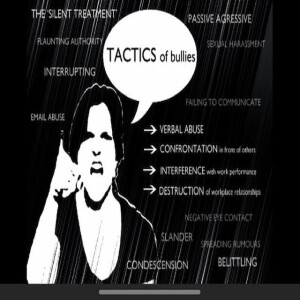
Wednesday Feb 08, 2023
120. Eden, Court Reporter.Workplace bullying in response to whistleblowing
Wednesday Feb 08, 2023
Wednesday Feb 08, 2023
Bullying at work is common and particularly pernicious when it comes from your manager. They can often become obsessed and expend enormous resources to catch you out or undermine your position. Todays conversation is from the heart as we touch upon matters that have personal meaning. Our guest is Eden. Eden is a court reporter and has worked as court reporter for two years now. She attends virtual employment Tribunals to take notes and share findings predominantly in whistleblowing hearings after having experienced the process of whistleblowing firsthand. Eden is from a, a writing and creative background and has recently written a graphic novel to highlight the serious silent epidemic within Society of Workplace bullying to help educate others, understand the horrendous traits of a adult bullying.
You can find a transcript of the conversation here:
https://open.substack.com/pub/lockedupliving/p/eden-workplace-bullying?r=216eb0&utm_campaign=post&utm_medium=web
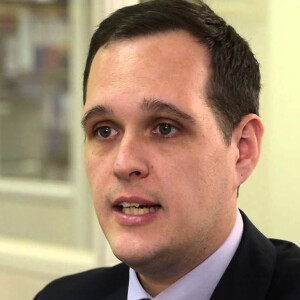
Wednesday Feb 01, 2023
119. Dean Kingham, prison lawyer: Is the parole process effective?
Wednesday Feb 01, 2023
Wednesday Feb 01, 2023
Dean has practiced in prison law for around 15 years. He is often at the forefront of the main challenges protecting the rights of prisoners and viewed as someone who works tirelessly to expose injustice and a lawyer who does not shirk from representing those for whom antipathy is to be expected from the courts, or the general public.
In 2020, he was named public law legal aid lawyer of the year, which recognised the fact he is often at the forefront of the challenging advancing prisoner rights.
He is trained in the main psychological risk assessments- HCR-20 (violence) psychological risk tool, RSVP (sexual) psychological risk tool and SAPROF (protective factors tool). Being one of a few lawyers trained in these tools he is able to better question the psychological evidence given in cases by Prison Service psychologists.
Dean also holds the following roles/positions:
Committee n a member for the Association of Prison Lawyers (APL) since 2015. He is the Parole Board lead for the APL and as a result, sits on the Parole Board user group;
Vice-chairman of Progressing Prisoners Maintaining Innocence (PPMI);
Sits on the Criminal Cases Review Commission (CCRC) User Group;
Councilmember for the Human Rights Charity Justice;
Sits on the advisory panel for Inside Justice.
dean.kingham@rtw.cjsm.netReece Thomas Watson Solicitors758 Holloway RoadLondonN19 3JFwww.reecethomaswatson.com
You can find a transcript of the conversation here:
https://open.substack.com/pub/lockedupliving/p/dean-kingham-typical-lefty-lawyer?r=216eb0&utm_campaign=post&utm_medium=web

Wednesday Jan 25, 2023
118. Caroline Purvey and Daniel Wood: The ’Total Release Experience’ programme
Wednesday Jan 25, 2023
Wednesday Jan 25, 2023
Caroline Purvey has dedicated over a decade to creating a unique, sustainable, cost-effective programme to eradicate unnecessary suffering from stress, overwhelm, and trauma. Her established and trusted brand TRE UK® delivers the Total Release Experience® programme which has transformed the lives of men, women, and children globally. Author of #1 bestseller ‘Feel It To Heal It’ Caroline comes highly recommended by professionals including doctors, counsellors, therapists, and psychologists. Her validated and accredited programme is adopted by Fire & Rescue, Police, and Prison Services. Her expertise is unparalleled, as is her drive and passion
Daniel Wood, is an International Speaker, and best-selling author.
Since 2012 Daniel has been Releasing for his well-being and working with his mother Caroline to share their programme with thousands.
Daniel wants to raise awareness and inspire communities and organisations to engage with the TAP process (Thoughtfully Activate the Psoas). Leading them to be an inspiration for 1 million teenagers in releasing their tension as they learn to Release, Recover, Discover.
Daniel is a father with purpose. His mission is to inspire and motivate 75,000 fathers to embrace the practice so they can lead their children to have a life tool for their stress management and can all live their best life.
Their website is https://treuk.com/
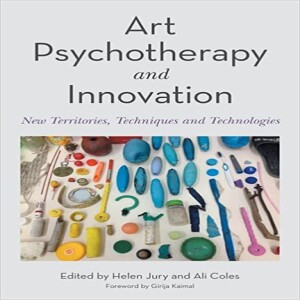
Wednesday Jan 18, 2023
117. Ali Coles & Neil Winter: Art Psychotherapy - making therapy accessible.
Wednesday Jan 18, 2023
Wednesday Jan 18, 2023
Ali and Neil talk about the work that they did together and how the art therapy 'fitted' and helped in ways that other therapies had missed.
Ali Coles is an Art Psychotherapist with Gloucestershire Health and Care NHS Foundation Trust and Visiting Lecturer at the University of South Wales; She is also Associate Editor of the International Journal of Art Therapy; She is also co-editor of Art Psychotherapy and Innovation: New Territories, Techniques and Technologies which is due to be published in July.
Neil Winter is a Barrister in Construction Law; he’s also co-author of a chapter titled ‘Curiosity, creativity and innovation in art psychotherapy’ in Ali’s forthcoming book. Together they co-authored ‘‘The silent intermediary’: which is an exploration of a client’s experience of art psychotherapy for C-PTSD'
‘The silent intermediary’: a co-authored exploration of a client’s experience of art psychotherapy for C-PTSD
Neil Winter & Ali Coles https://www.tandfonline.com/doi/abs/10.1080/17454832.2021.1898425
Art Psychotherapy and Innovation: New Territories, Techniques and TechnologiesHelen Jury & Ali Coles (eds.) https://uk.jkp.com/products/art-psychotherapy-and-innovation
Submit a manuscript to the International Journal of Art Therapy for a special issue on Art therapy with people who have experienced traumaDeadline 31 March 2023 https://think.taylorandfrancis.com/special_issues/international-journal-art-therapy/
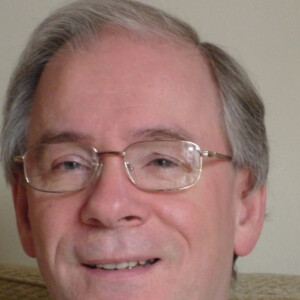
Wednesday Jan 11, 2023
116. Robert Forde. Insider/outsider a critical perspective on forensic psychology.
Wednesday Jan 11, 2023
Wednesday Jan 11, 2023
I was brought up in Belfast and London, and have since lived all around England, and for 10 years in West Berlin (five years before the Wall was opened and five years after). I went to university in the late 60s, and went to work as a prison psychologist in 1971, based in several different prisons, before going to the Home Office Research Unit in London in 1978. In 1980 I left the Home Office and became a househusband for a couple of years. I then spent a couple of years as an education welfare officer (chasing truants around the estates of Milton Keynes) before my late wife accepted the deputy headship of the forces secondary school in West Berlin in 1984. We stayed there until the withdrawal of British forces in 1994. I had ambitions to be a writer, and my first novel was published in the UK in 1990. I also became a feature writer for the army newspaper there. Unfortunately, my career as a novelist is still waiting to take off! I have, however, published several novels on Amazon Kindle (https://www.amazon.co.uk/Robert-Forde/e/B00C4BJQGW/ref=aufs_dp_fta_dsk).
After returning from Germany I had no job and no recent work experience in psychology, so my wife and I bought a B&B in North Devon, and ran it for three years. In 1998 I went back to university and did a Masters degree in health psychology, and began working for an old prison service colleague who now had his own consultancy. In 2001 he retired and wound up the business, and I went into business for myself, providing services to lawyers. Mostly, this consisted of expert witness work, providing reports on individuals for courts. Initially, quite a bit of this was in the family courts, and some in criminal cases. Following a court ruling, a great deal of work was generated in the parole field, and this subsequently became most of what I did. This continued until I retired in 2016.
In 2018 my book "Bad Psychology" was published (https://www.amazon.co.uk/Bad-Psychology-Forensic-Science-Behind-ebook/dp/B0713WJXFH/ref=sr_1_1?crid=SZ3S6Y44S9Q3&keywords=Bad+psychology&qid=1669024629&s=digital-text&sprefix=bad+psychology%2Cdigital-text%2C74&sr=1-1). This was pretty much my last professional work in psychology. My latest novel is the "The Psychopath’s Checklist", which is inspired by (rather than based on) some of the characters I've met, and also examines some of the criteria used to diagnose them!
I have two adult daughters and three grandsons. My late wife was diagnosed with cancer in 1999 and died in 2005. In 2010 I remarried, acquiring a stepson. Now happily retired, I am still writing novels, am a singer-guitarist and also sing with a sea shanty group called the Dorset Wrecks. As we are on the brink of moving to Sheffield, the latter will have to stop.
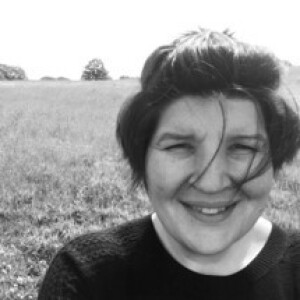
Wednesday Jan 04, 2023
115 Libby Nugent on group analysis, psychology and storytales.
Wednesday Jan 04, 2023
Wednesday Jan 04, 2023
Dr Libby Nugent is a Clinical Psychologist and group work practitioner of Group Psychoanalysis. She specialises in sexual health, complex trauma and group psychology. She has a longstanding interest in the need to connect with creative ways of thinking deeply about ourselves, each other, our society and the many identities we live.
Libby has an online workshop series January 2023
https://www.eventbrite.co.uk/e/fairytales-and-formulation-in-psychology-and-psychotherapy-tickets-458257770327
Libby has a strong interest in Jungian and Group Analytic Psychoanalysis. and she is training to become a group psychoanalyst. Much of her work now is to provide reflective spaces for both members of the public and also professional groups such as senior clinicians and pre-clinically qualified psychologists; 'Providing creative ways to think deeply about ourselves, each other, our society and the many identities we live.'Webpage : Welcome to the Homepage of Dr Libby Nugent
Blog: https://www.libbynugent.com/
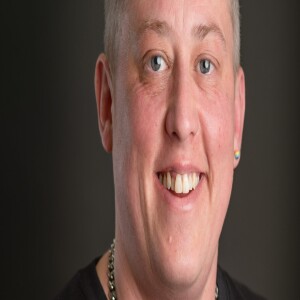
Wednesday Dec 21, 2022
Wednesday Dec 21, 2022
David first had the pleasure of meeting Dalton when visiting Ripon House, an exceptional approved premises for women in Leeds. Dalton had left the hostel some time earlier but returned to share some of his experiences with me and my colleagues. Dalton Harrison is the founder of StandFast Productions (a collective of ex-offenders who use art and performance to tell their stories) and has worked as a teaching assistant with the Inside-Out Project at Durham University.Dalton has written articles for Inside Time, Pink News and Sister Magazine x TGN, and has delivered poetry workshops alongside Durham book. He has performed at Leeds Poetry Festival s. He continues to take talks on prison issues using poetry across the country. His poetry has been published in the award-winning anthology Bloody Amazing and TransVerse II: No Time For Silence. The book The Boy Behind the Wall is his first solo collection.
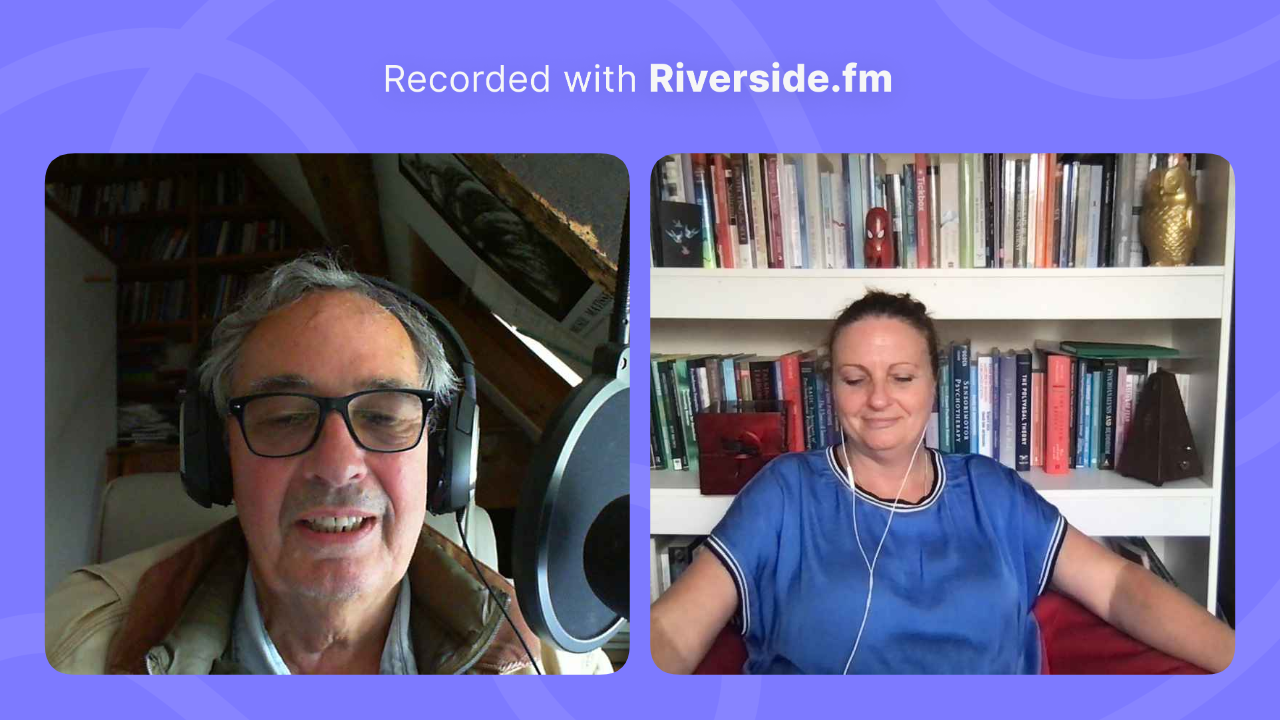
Why 'Locked up Living?'
David is a psychotherapist who has worked leading therapeutic communities in English prisons and in Millfields, an NHS forensic setting in East London. Naomi is a Consultant Clinical and Forensic psychologist who was, for many years, clinical lead at The Fens, a treatment programme for serious offenders at HMP Whitemoor. We had both experienced painful and destructive forces in our work and so we set out to discover what things make a positive difference for staff and service users and what is it that makes things go wrong. Of course we found out that there is no easy answer but there are many fascinating and valuable experiences to be heard.






